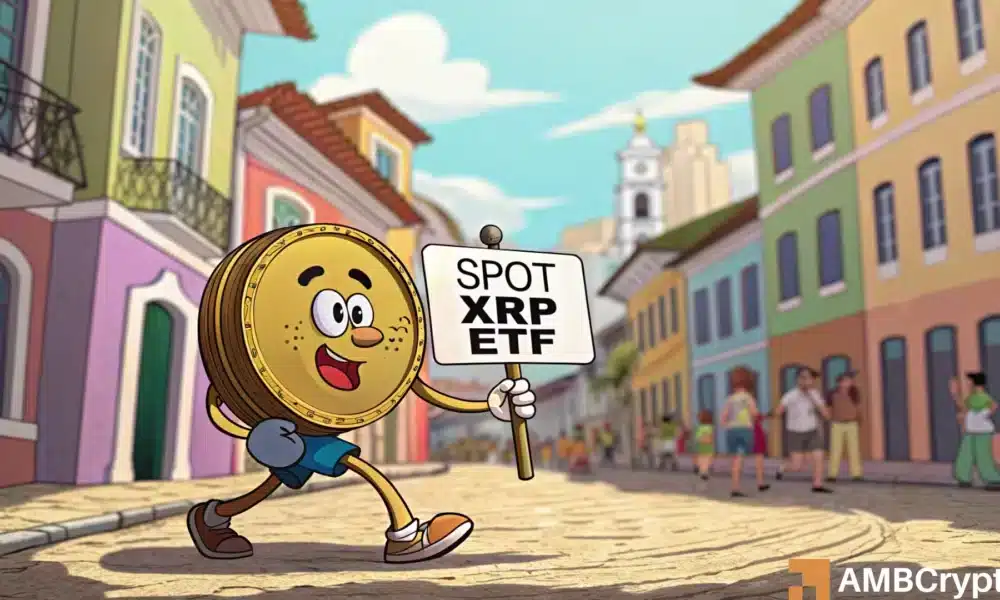In today’s digital economy, blockchain technology shines brightly like a star, capturing the attention of investors, developers, and everyday users alike. Yet for many, blockchain remains an elusive concept. What is blockchain? How does it work? Why is decentralization so crucial? These questions are undoubtedly essential for anyone wanting to enter this field. Today, we will dive deep into the essence of blockchain, its operational principles, and the significant importance of decentralization, helping you better understand this disruptive technology and keep pace with future developments

What is Blockchain?
In simple terms, blockchain is a distributed ledger technology that ensures the transparency and security of information by storing data in an ever-growing chain of blocks. Each block contains a set of transaction records that are cryptographically linked to the previous blocks, forming a chain. Once recorded, this information is difficult to alter or delete, ensuring the integrity of the data.
Transparency: In traditional databases, information is stored on a central server, accessible only to those with permission to view or modify it. In contrast, in a blockchain, all users can access the entire history of the chain, which decreases the chances of fraud or error due to its inherent transparency.
Immutability: Through a combination of encryption and chain structure, once data is recorded on the blockchain, it cannot be easily modified or deleted. Any attempts to change any part of the data on the blockchain would be rejected by other nodes in the network.
Decentralization: Blockchain does not rely on a single central authority. Instead, it is maintained and validated by thousands of nodes worldwide. Decentralization not only enhances security but also increases resilience to risks.

The Importance of Decentralization
Decentralization is one of the core features of blockchain technology, providing fundamental transformations for many applications. Why is decentralization so important? Here are a few key reasons:
Reduced Single Points of Failure: In traditional centralized systems, a single point of failure (such as a server crash) can lead to the collapse of the entire system. In decentralized networks, multiple nodes collaboratively maintain data, so even if a few nodes fail, others can continue to operate.
Empowered Users: Decentralization means users can manage their assets and data more autonomously. In traditional financial systems, banks and other institutions hold authority, leaving users with limited control over their funds. In blockchain, users can manage their assets directly through private keys.
Enhanced Security: Blockchain technology employs encryption to ensure the security of each transaction. Decentralization means that your data is not concentrated in a single system but is instead stored in a distributed manner, greatly increasing resilience to hacking attempts.

Fostering Trust: Decentralized systems operate in an open and transparent manner, reducing the need to trust intermediaries. Users can transact directly across the network without relying on third parties, which is crucial in many application scenarios (such as finance, supply chain management, voting, etc.).
Blockchain Applications
The potential of blockchain technology extends far beyond cryptocurrencies; it holds wide-ranging applications across various fields:
Finance: Blockchain technology can enable quick settlement and low-cost transactions, such as cross-border remittances and peer-to-peer lending.
Supply Chain Management: By recording each step of goods on the blockchain, companies can enhance transparency, reduce fraud risk, and improve efficiency.
Voting Systems: Blockchain technology can establish secure and transparent voting mechanisms to effectively prevent electoral fraud.
Copyright Protection: Artists and creators can record their works on the blockchain, securing their copyrights and enabling monetization.
Identity Verification: Blockchain can create decentralized identity verification systems that protect user privacy and reduce the risk of identity theft.
Future Outlook
As technology continues to develop, the potential of blockchain will become increasingly apparent. In the future, the principle of decentralization is expected to permeate more industries and applications, reshaping our current economic and social structures. However, like any new technology, blockchain faces challenges in achieving mainstream application, such as scalability, energy consumption, and regulatory compliance. These issues require industry practitioners and policymakers to work together to address.
Conclusion
Blockchain technology serves as an essential cornerstone for the future digital economy, while the model of decentralization provides security, transparency, and user autonomy. In this rapidly evolving digital age, understanding blockchain and its decentralized philosophy has become a necessary skill for every investor and average user. I hope this article helps you gain a deeper understanding of blockchain and seize the opportunities and challenges presented by this technological revolution!
















No comments yet